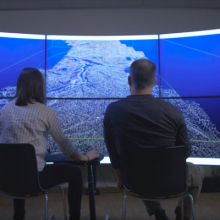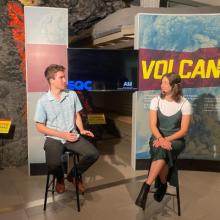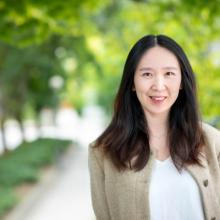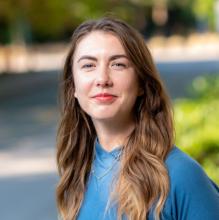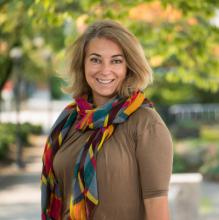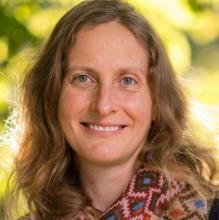The findings of my PhD will result in clear recommendations for the improvement of Canada’s flood mapping practices, which will be passed on to the flood practitioners who will be interviewed throughout my research. Hopefully, this dissemination to practitioners and also Natural Resources Canada will help one day decrease flood risk for many Canadians. Through advocating for the inclusion of Indigenous ways of knowing surrounding floods the research will also hopefully be a step towards decreasing the disproportionate flood exposure that Canada’s Indigenous communities face.
Research Description
My research investigates what the best practices in Canadian flood mapping should be, drawing from expert practitioners, First Nation collaborators and the state of flood maps both nationally and internationally to make recommendations.
What does being a Public Scholar mean to you?
Being a public scholar is an incredible opportunity, aligning directly with my personal research goals and values. Coming from a physical geography (strict quantitative science) background, I found myself often despairing at the lack of opportunities to connect my work to the communities that would benefit from the findings. UBC’s public scholar initiative offers me the funds, and more importantly, the skill-building opportunities to ensure that my research implications can be grounded in the real world and not trapped within the bubble that can encapsulate academia. In short, being a public scholar provides me with a pathway to make a difference.
In what ways do you think the PhD experience can be re-imagined with the Public Scholars Initiative?
I think a PhD is a challenge we undertake to better ourselves and create change in the world. While these goals can sometimes be achieved through a thesis alone, in reality, so much more can be achieved through re-imagining the PhD experience and the dissemination of results. The Public Scholar’s Initiative provides the tools to think about why we are doing a PhD in the first place, and how the research can best reach its key audiences.
How do you envision connecting your PhD work with broader career possibilities?
I don’t intend to follow down a tenure-track path. Instead, I see my PhD opening up new opportunities within the government and non-profit sector. My PhD will provide me with an interdisciplinary set of tools that I hope to take into real-world disaster/hazard management scenarios where I can advocate for the importance of mixed-methods approaches and the inclusion of diverse worldviews.
How does your research engage with the larger community and social partners?
Several aspects of my research are co-designed with external partners, including Sumas First Nation and Natural Resources Canada. Along with my PhD dissertation, I will be designing and writing public-facing outputs on local flood risk contexts that may emerge from my work, and internal government reports summarizing the results and providing clear recommendations for the improvement of Canadian flood mapping.
Why did you decide to pursue a graduate degree?
I chose to pursue a graduate degree because it offered the time to deeply and wholeheartedly devote myself to my personal research goals. The support and learning opportunities that are offered during a graduate degree provide me with the chance to try and improve my personal understanding of my research topics, while also making a difference. With hazards and disasters increasing under climate change around the world, a graduate degree was the place where I saw the most chance to try to help.
Why did you choose to come to British Columbia and study at UBC?
I chose to come to UBC thanks to its unique placement as a university that advocates for and prioritizes the inclusion of Indigenous sciences alongside Western practices. I came for my fantastic supervisors Prof. Stephanie Chang and Prof. Simon Donner, thanks to their world-renowned expertise in disaster and climate risk. Finally, I came specifically to research in the Institute for Resources, Environment and Sustainability, thanks to its reputation as an interdisciplinary department that encourages the bridging of epistemological differences.
What is it specifically, that your program offers, that attracted you?
I was drawn to the PhD program at IRES given its interdisciplinary focus and history of community collaboration and solutions-driven research.
For you, what was the best surprise about graduate life, about UBC or life in Vancouver?
The beauty of the campus. Every day I walk to the office surrounded by views of mountains, trees and rose gardens.
What aspects of your life or career before now have best prepared you for your UBC graduate program?
My current PhD work benefits from my diverse research background. I am trained as a fluvial geomorphologist (river scientist) with degrees in physical geography and earth sciences. This background has given me the technical disaster and mapping knowledge I now draw on in my research design decisions. However, my professional work has been in a mixture of social science and natural science research roles, creating maps, but also acting as a facilitator of workshops and participatory community outreach events. This combination has set me up well to undertake a mixed-methods research approach.
Do you have any tips for students from your home country coming to Canada / to UBC Grad School?
Don't be afraid to reach out to professors and other academics. While everyone is busy, amazing relationships and research opportunities can emerge when you ask.
UBC’s public scholar initiative offers me the funds, and more importantly, the skill-building opportunities to ensure that my research implications can be grounded in the real world and not trapped within the bubble that can encapsulate academia.

